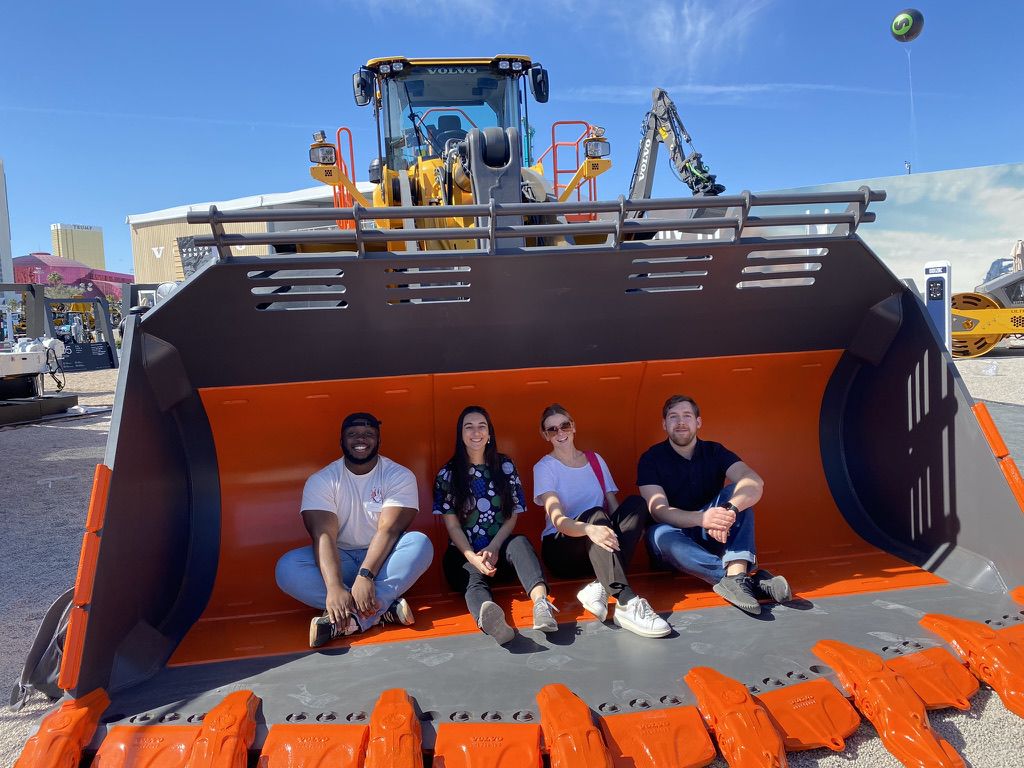Volvo and academia collaboration towards fossil-free solutions


This March, the Volvo Construction Equipment booth at CONEXPO, the largest construction show in North America, highlighted one of these Academic Partnerships. ME310 is a Mechanical Engineering Capstone course for graduate students at Stanford University in California and Blekinge Institute of Technology in Sweden (BTH.) In conjunction with the Innovation Lab by Volvo Group in Silicon Valley, Volvo CE prompted the ME310 students to consider “How might we support electric adoption beyond the electrical grid?”
The students from Stanford and BTH went on an inspiring journey across continents – building the future from paper to prototype. To solve the task assigned by Volvo, the teams created functional and portable prototypes for a two-part energy generation and distribution system called Oasis and Nomad. Oasis generates electricity using wind turbines and solar panels, while Nomad then distributes that electricity to the electric machines working in remote areas.
Four students attended CONEXPO in Las Vegas to showcase their solution, as well as talk about the collaboration with Volvo and why it is so important to both students and corporations to make these connections between academia and the real world. By supporting these projects, Volvo Group is actively nurturing brilliant young minds in engineering that push the boundaries of traditional problem solving.
“The ME310 students that presented the Oasis and Nomad concepts on behalf of the entire team from Stanford and BTH were a welcome and valued part of the Volvo ConExpo booth experience,” said Dr. Ray Gallant, VP of Sustainability and Productivity for Americas of Volvo CE. “Including these students demonstrates Volvo’s commitment to co-creating solutions with various stakeholders, including academia, customers, vendors, and industry partners. Throughout the week, students were professional, enthusiastic, and eager to continue learning and innovating, which signals a bright future for themselves, Volvo, and our industry.”
The Innovation Lab in Silicon Valley supports many different academic partnerships in partnership with different business areas across Volvo. For the 2023 Academic spring term, the team is collaborating on projects with the ME310 Program at Stanford and BTH again, as well as with Carnegie Mellon University, ArtCenter College of Design, Cornell University, and Hyper Island. Each project is sponsored by a different business area within Volvo and asks the students to address a challenge that Volvo Group is facing – either now or in the future.
“These Academia projects are a great opportunity for Volvo to showcase how we are innovating and utilizing partnerships in many different ways to move us into the future,” said Maggie Oren, Strategic Partnership Manager for the Volvo Group Connected Solutions Innovation Lab, Silicon Valley. “When we bring these prompts to students, it introduces new ways of addressing the problem that we at Volvo probably haven’t considered yet.”
To learn more about the ME310 solution, watch this video.